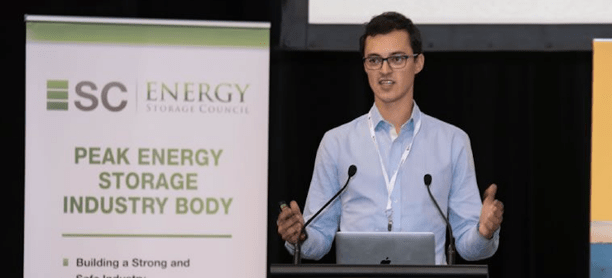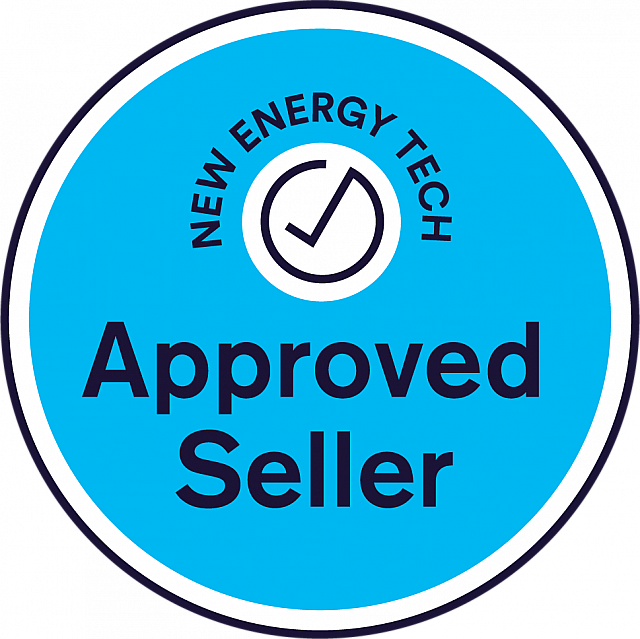ShineHub’s Alex Georgiou spoke at the Australian Solar Council’s annual conference in Melbourne on what the industry needs to do to ensure that Australia becomes a success story for consumers, communities, and the planet. Watch the Australian Solar Council Video Here
Over the next few years, 10 million households in Australia will have batteries in their homes and they will play a critical role in how Australia manages its grid around renewables and distributed energy generation.
It’s starting to happen right now. Warwick Johnson of SunWiz recently released a report stating that roof top solar installs hit the highest level in one month since July 2015, and remember July 2015 was the end of? The feed in tariff. So last month was the biggest month for solar since the end of the feeding tariff.
And that’s why he believes more and more customers are going to buy batteries as well. Based on his research, the market for batteries is set to triple for 2017, with 70% of interviewed house holds planning on addding a battery or two in the near future.
This is all to say this is a massive opportunity in solar and storage. We have opportunity to lead the world in this. This is one the reasons I stayed here, coming from the states four years ago. With many companies launching their new products and services here in Australia, it’s on us to prove that it can work. We have the opportunity to lead the world here.
On the other hand, we can also show the world how things can go wrong. With the increasing complexity of solar battery monitoring and appliance control, there’s much more room for error and the errors are magnified when they happen. As more and more customers buy, the risk goes up.
We’ve all probably seen this image a few years ago, a battery installation gone wrong, catching fire after a poor installation. We’ve been all frustrated by the recent response to try and put unfair and unnecessary regulation on the installation of lithium ion battery storage on homes.
But if we look back at how solar has gone over the last few years, I can’t say that I’m too surprised. The industry has moved towards solar retailers that have been pushing down installation prices, encouraging cutting corners, lower quality installations and more untrained staff, making it nearly impossible for installer who is top quality, who is top trained and who does take the time to do it right, to make a sustainable income. We’ve seen a lot of the top local installers move away from solar as a result.
Those who are sticking around and running their own businesses are often finding it very hard to compete with these big solar businesses. But as the warranty issues come back to bite them in years and years later many simply close their doors, shutting down and leaving their customers in the dark. It’s no wonder that over 500 solar companies have gone out of business in recent years.
So who are the real winners here?
It’s not the customers, who are getting lower quality installations and bad advice up front. It’s not the installers who are struggling to make ends meet and they’re trying to do a good job.
So what’s the solution? Many say education, and I think that’s very important however we’ve tried that before, we’ve tried simply educating and we’ve seen the results of that.
Given a significant cost difference many customers are still choosing the cheaper lower quality option, and with bigger solar retailers having advantages like bulk buying power, advanced software systems, big marketing budgets it hard for smaller local businesses to compete.
We need to find a way as an industry to help the high quality local installers compete with the bigger retailers so that we can have a higher quality of installation and less errors as the complexity continues to increase with these new technologically advanced systems.
We need to find a way that high quality local installers can bring customers in the door, earn fair installation rates for a sustainable local business and stay competitive on price.
Once you do that the industry will start to shift back to local installers, Australians have shown to love. The installation following will improve and customers will get the reliable systems they’re so desperately searching for and they’ll be designed properly while supporting the local community.
The great part is the installers don’t have to do it alone. By leveraging smart software solutions we can help solar and battery storage spread the right way – by helping the local high quality installers succeed and get some of the benefits that have been reserved for the bigger solar retailers and energy companies.
So lets look a few ways that this can happen:
Number one: if the installers want to do more themselves, they can look at a CRM system, which is a customer relationship management system, that allows a lot of what has been paper work and tidy work to be done on the cloud and online on tablets, phones or computers so that installers can focus more time on customers and installation and less time wasted with all the busy work.
There are a number of these, I’m showing here SolarPlus also pvCell each has a different specialty and appeal to different types of business models. Jelly is a new one that is very interesting, recently coming into the Australian market, focusing on commercial storage solutions and intelligent energy management. This is a free tool for system designers of commercial systems to deal with actually accessing and design the right system for their clients. This is a perfect example of how technology can help because instead of having to help for an advanced software system, which would be out of scope for many of the local smaller businesses, this is a free platform that enables them to win business, and you have applications like Formbay that help make STC processing easy by collecting all the serial numbers photos, customer sign offs, applications without having to collect or scan a single document.
And then there’s what we’re doing, which is bulk buy software that helps local installers participate in a large bulk buy, that gets hundreds on people on board with solar and storage systems while allowing them to focus on the installations and not be burdened by the huge administrative burden that happens when you have 400 sales coming in at once.
And by the way, 60% of customers in the bulk buys are selecting a battery with their system. That’s a very significant number, and is why I believe projections we’ve all been talking about underestimate what’s really going to happen.
People want this, like Jeff said they don’t trust the energy companies anymore, they don’t trust somebody else to take care of them, they want to take care of themselves so that they know they’re secure – and a solar power and battery system does that.
The key thing with this kind of system is leveraging smart technology so that local installers can make a sustainable wage while having extremely competitive customer facing pricing – bringing in hundreds of customers at a time.
So in summary, solar is back, it’s growing and batteries are coming with it.
The future of smart distributed energy is in sight, now it’s a matter of getting there the right away. And for good local installers new software solutions are coming out to help compete so they can build their own businesses up. That way, this world changing renewable generation infrastructure is built the right way and is built reliably.
In a few years I hope we can all look back and know we have shown the world how to move a modern country to 100% renewable energy from the ground up. Thank you very much.




